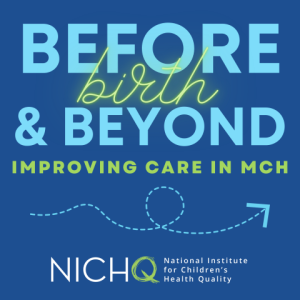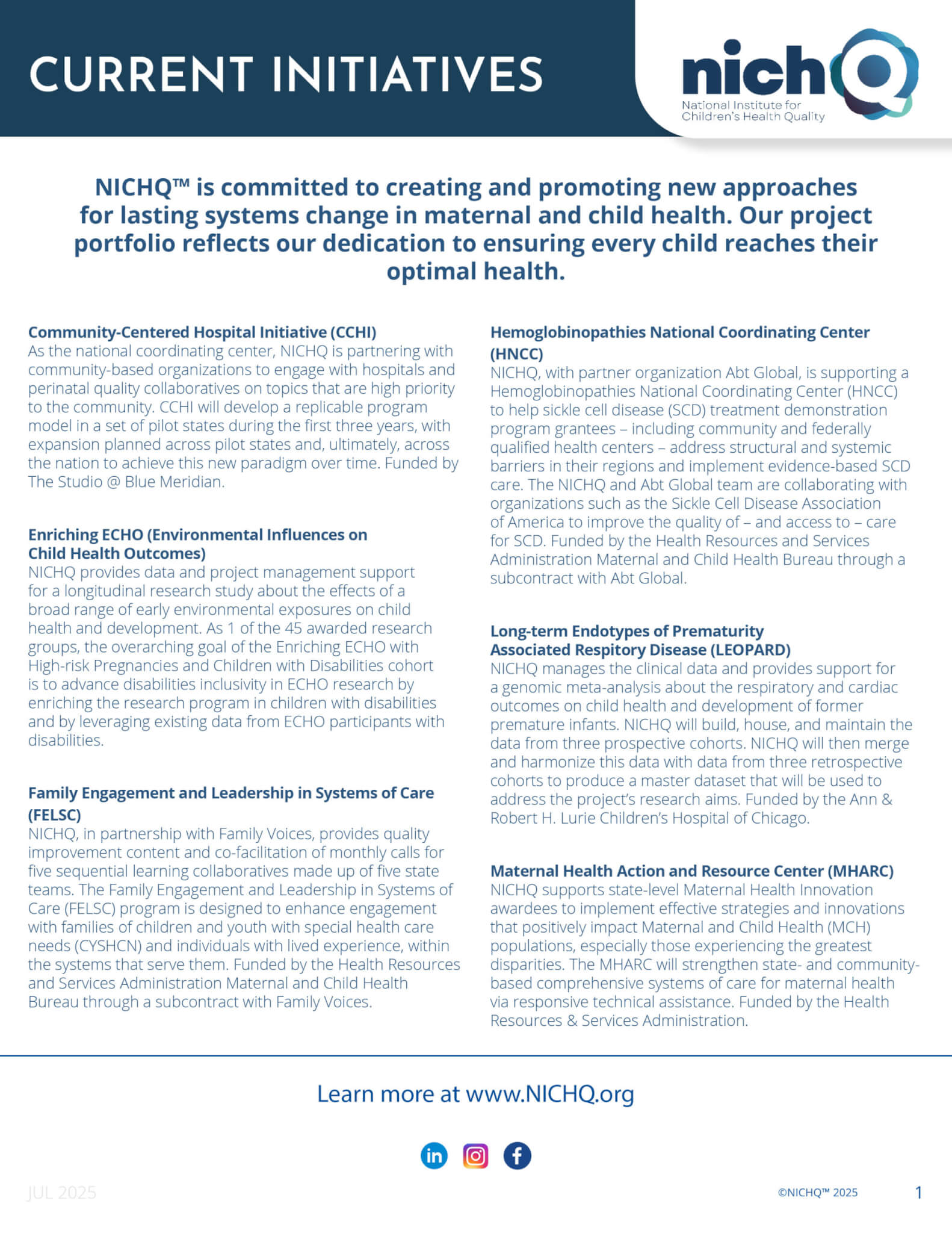New York State Breastfeeding Quality Improvement in Hospitals (BQIH) Collaborative
A quality improvement initiative to increase exclusive breastfeeding rates and the duration of any breastfeeding among new mothers, especially low-income women participating in WIC and Medicaid, by improving hospital and worksite policies, practices, systems, and environmental supports for breastfeeding to be consistent with New York State laws, regulations and other policies.

Who
Participants include 12 teams in Phase 1 (June 2010 to March 2012) and 32 teams in Phase 2 (April 2013 to October 2017).
Our Role
Facilitate a modified Breakthrough Series Collaborative to apply quality improvement methodology to increasing exclusive breastfeeding rates within a selected group of New York State hospitals. We also assist in building NYSDOH’s internal quality improvement capacity by providing expertise and coaching to the NYSDOH staff supporting the project.
Funder
This project is in partnership with the New York State Department of Health (NYSDOH) Bureau of Community Chronic Disease Prevention. It is funded by the NYSDOH and the Centers for Disease Control and Prevention (CDC).
Project Impact
External Resources
State Perinatal Quality Collaboratives
List of PQCs funded by the Center for Disease Control and Prevention (CDC)
The Power of PQCs
Video showing the impact that PQCs have on the communities they serve. Produced by the NNPQC.
PQCs in the News
Articles in news outlets covering state PQCs, their activities, and the people that work in the collaboratives.
Patient Safety Bundles
From the Alliance for Innovation on Maternal Health. PSBs are collections of evidence-informed best practices that address clinically specific conditions in pregnant and postpartum people. The NNPQC helps provide TA and support to PQCs in adopting the core AIM Perinatal Mental Health Bundle.
Perinatal Quality Collaboratives
The CDC’s landing page for PQCs, including helpful infographics, videos, and links to help explain what PQCs are, how they work, and stories, learnings, and publications that have come out of the state PQCs.
Related Content
Resources produced by the New York State Breastfeeding Quality Improvement in Hospitals (BQIH) Collaborative project or on related topics
Meet Our Team
“In our deep organizational work to move along the Equity Systems Continuum from a Savior-Designed System to an Equity-Empowered System, we acknowledge the power of action. The potential is limitless for today’s commitments to improve the systems in which health care and public health professionals work and families receive care.”





